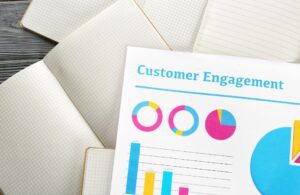
The Ultimate Guide on Social Media for Business
If you are looking for a comprehensive guide on how to use, develop, and optimise social media for business, you have come to the right place.
This guide comes to you from our social media experts, who will cover all you need to know about:
- Social media marketing
- Why it is important
- What platforms you might use
Even better, alldayPA can take over managing your social media profiles and responding to your messages, making it as hassle-free as possible for all small businesses and sole traders.
What Is Social Media Marketing?
Social media marketing is a crucial aspect of every business’s digital marketing strategy. Business profiles will be set up on the most popular social media channels to support your overall marketing strategy, helping you to achieve your every business goal. However, by no means is it just a case of setting up profiles on social media platforms and calling it a day – you must have an effective social media marketing strategy.
The best social media marketing strategy involves updating, maintaining, and optimising your image and content, making sure your content is consistent with your branding, being responsive to comments and messages, and ensuring that you are engaging with your audience.
The success of your social media strategy can be measured using specific metrics and analytics, which look at your follower count, interactions, engagement, and how well your content is performing in comparison to previous content. This allows you to measure and track quantifiable data to optimise your profiles and increase your reach.
Why Is Social Media Important for Businesses?
Now that you know exactly what social media marketing is, let us move on to why social media for business is so important – whether you are a business owner of a B2B company or B2C company inclusively. As social media is so flexible and versatile – and, even more importantly, free to use! – the range of benefits social media brings to businesses is seemingly endless.
With this in mind, the team here at alldayPA has selected just a few examples of the most important advantages of using social media marketing for your business.
Audience Engagement
Whether it is academic engagement or customer engagement, your social media content has the opportunity to increase your audience engagement. It can be used alongside other types – such as blog posts and landing pages – to drive engagement of current customers, and potential customers, as well as increase your customer base.
Inbound Linking
Following on from the above, business social media can be used to support long-form content, driving traffic to your website. Whether you use a funky graphic to advertise your latest blog post or produce content to support a new product launch, you can include a link back to the appropriate page on your website. Making the customer journey as easy as possible can not only drive traffic to your website but also increase conversions.
Lead Generation
Another benefit of linking back to your website is that it can generate new leads and customers, making it one of the most enticing business strategies. Including a call to action (CTA), contact button, a link to book an appointment, or a link back to your products is simple, easy, and cost effective; it is a particularly savvy way to generate leads as a sole trader, startup, or small company due to its high return on investment (ROI) and little time or capital cost.
Customer Satisfaction
Yet another benefit of improving the customer journey is increased customer satisfaction. Instead of having to search through multiple channels to find what they need, if you have links back to your other profiles, products, services, contact page, landing pages, and so on, you will have saved them time and stress. This shows that you value them and are committed to giving them the best experience possible.
Social media also gives you the opportunity to increase customer satisfaction by addressing their concerns, fixing their problems, and generally improving your processes and customer services. Again, this is another way that you can evidence prioritising customer experience and satisfaction above all else.
Customer Relationships
Social media will give your business a voice and, more importantly, a face. This will humanise your brand, making it more relatable. By having the opportunity to give your opinions and interact with your audience, you will become more approachable and familiar, as customers will find it easier to connect and build a relationship with you. As you can connect on a personal level with your customers this way, building a relationship will lead to increased trust in your brand – which brings us to our next point: customer loyalty.
Customer Loyalty
By building trust with your customers, and a personal relationship, customers are more likely to take your recommendations and respond to your CTAs. As customers trust you, they are also more likely to be loyal to your company and recommend you to their friends and family. In fact, brands that have an emotional connection with their audience typically receive three times more recommendations than those that do not.
Word of mouth is one of the most effective tools in your arsenal: 92% of people trust recommendations from friends, and 74% are likely to purchase from a brand recommended by an influencer. Thus, fostering a sense of trust and loyalty can have a huge impact on your sales.
Customer Service
Social media can also be utilised as a customer service platform – an extension of your email, telephone, and live chat customer services. Research has shown that 33% of customers want to get their issue resolved in one interaction, no matter how long it takes, and 31% value a knowledgeable customer service representative.
Unlike phone calls and instant messaging, answering customer queries over social media gives the customer service agent more time to understand the problem at hand, as there are few time constraints. This allows the agent to answer the questions in one interaction, or ask another agent more qualified to answer the message, in a single interaction without the customer having to be transferred from one representative to the next.
Brand Awareness
In 2019, around 72% of online consumers used social media to discover new products, and 36% made a purchase directly from social media. As social media users are steadily growing, predicted to increase worldwide from 3.6 billion in 2020 to almost 4.41 billion by 2025, it is only logical that the number of people finding and buying products on social media will increase too.
As of 2022, social media users also spent an average of 147 minutes per day on social network platforms. With all of these statistics in mind, it is clear that social media for business has the potential to rapidly increase brand awareness, and increase conversion rates.
Show Off Your Expertise
Social media allows you to cement your brand as a thought leader in your industry. A thought leader is an expert in the field and the person that people go to for advice and the most up-to-date accurate information. Thus, by sharing your expertise on social media, you have the opportunity to further build trust in your brand.
Manage Reputation
Whether you like it or not, whether it’s good or bad, the likelihood is that people are already talking about you on social media. Creating your own business social media accounts allows you to take back control of how your brand is portrayed on social media, enhancing the impact of the positive comments, and giving you the opportunity to address any negative feedback.
This will allow you to fully manage your reputation online, responding to everyone in a calm, polite manner, no matter how positive or negative the comments may be. Even if you are getting poor reviews, showing that you address customer concerns and fix the issue will only be an advantage to your business’ reputation, as it shows that you are attentive to your customers’ needs and value their feedback.
Disaster Recovery
One thing the coronavirus pandemic – and the last few years in general – has taught us is how important it is to be responsive and adaptive when faced with a crisis. Social media can be utilised to inform your audience about the measures you have in place to ensure your business runs smoothly in the event of any disaster.
In addition to this, 71% of consumers place a large amount of emphasis on buying from companies that share the same values as them. In the case of political crises or issues surrounding global warming, this means it is important to speak up about what you believe in. Being vocal about your beliefs, and aligning them with the values your target audience shares, has the opportunity to increase loyalty and trust in the brand.
Insights into Your Target Market
In the digital age, all the major social media platforms have in-built metrics and analytics for businesses that allow you to gather and analyse real-time data. This data can then be used to better understand buyer behaviour, likes, dislikes, activity, frequency, and much more about your target audience. With all of this in mind, you will be able to see what works, what doesn’t, and how you might improve, giving you the opportunity to optimise your profiles and content accordingly.
Learn More About Competitors
If you are a smaller business or startup, researching what your target market desires can be quite time consuming and costly. So, it is important to keep up with your competitors. Take a look at their profiles, their mentions, replies, topics they discuss, and so on. This will show you what it is that your target market responds to, as well as potentially highlight knowledge gaps in the industry that you can take advantage of.
Better Targeted Ads
Nowadays, advertisements saturate our day-to-day lives. So, it is more important than ever before that we ensure ads are relevant to those who view them; if they aren’t, it is only going to make people feel frustrated that their viewing habits have been interrupted.
All the major social media platforms have finely-tuned algorithms that identify people in your target demographic, only showing your ad to them. Due to this, you can optimise and maximise your ad revenue and ROI, ensuring that your ads are specifically targeted to your prime demographic.
Case Studies and Reviews
One study found that 94% of customers are more likely to use a business with positive reviews, whereas negative reviews make 92% less likely to use a business. In fact, 79% of respondents stated they trusted online reviews as much as recommendations from their family and friends.
As many social media platforms nowadays also have the functionality to support reviews, feedback, and comments, this can help you to collect and collate real reviews and case studies from real customers, which can then be used to foster and develop increased trust in your business.
What Are the Most Popular Social Media Platforms for Small Businesses?
With all of the various social media platforms out there, it can be tricky to decide which one will work best for your small business. Below, we’ve taken a deep dive into some of the most popular ones – why they work and don’t.
Facebook for Businesses
Facebook, as of January 2022, is the most popular social networking platform, with upwards of 2,910 million active users every month worldwide. Interestingly, the same study found that both the third and fourth most popular platforms are also from the same family of platforms – Facebook Meta’s WhatsApp and Instagram – with 2,000 million and 1,478 million monthly users respectively.
Advantages
- Facebook allows users to leave online reviews, which are often more trusted than other online review sites. As mentioned before, positive reviews can be crucial for developing trust and loyalty in your business, as customers will highly value real reviews from real people.
- The Facebook Pages to Watch tool allows you to look at how your profile is performing, and even compare your performance against the pages of your competitors.
- Facebook Live functionality can be used to live stream events, product launches, and more, demonstrating how your products and services work, and bringing your community together.
- You can easily reply to messages on Facebook Messenger and comments on your Facebook page, supporting efficient two-way communication between brand and customer.
- Facebook ads can target a specific audience, based on multiple factors like age, gender, location, and purchasing habits.
- The content you post to Facebook can be specifically curated to drive traffic back to your website, including links back to specific pages and blogs. It can also be used to support your SEO and blogging techniques, posting updates to your followers when you have produced brand-new content.
Disadvantages
- Although positive reviews are, well, a positive, a negative review can be detrimental to the reputation of your brand, especially if you don’t respond to it properly, and the review is posted publicly.
- Facebook works best if you pay for ads and promotions, which can be costly over time.
- Unlike other social media platforms, it can take a lot of time to set up, plan and produce content for your Facebook page.
Using Instagram to Promote Your Small Business
Instagram can create fantastic opportunities as a platform for business. Though it is not one of those platforms for business that is utilised all that much, this can be of your benefit. As Instagram is predicted to only grow in the future, using this social media platform for your business now will allow you to get a foot in the door before the market becomes overly saturated.
Advantages
- You have probably heard the phrase “a picture is worth a thousand words”, and, luckily, that’s what Instagram is all about.
- Instagram allows you to not only post images and videos to your timeline but also upload Instagram Stories. This function also offers the ability to produce polls, surveys, host Q&As, and keep track of how many people have viewed the content.
- Instagram was created for smartphones – as we are more likely to scroll through social platforms on our phones on the go, this means your profile is more likely to be seen.
Disadvantages
- The majority of Instagram users tend to be of the younger generations. Not only does this mean that your target audience might not necessarily be on Instagram, but younger people often have less (or no) disposable income.
- Though Instagram has made steps towards encouraging commerce on the platform, it is still used by many for keeping up to date with our favourite celebrities.
- You are limited to connecting with viewers by visual mediums, as there is little room for additional content in the captions. Not to mention, you cannot include links or URLs in the content.
How Small Businesses Use Twitter
Twitter is a popular way for brands to become part of the conversation. Often used reactively, and even cheekily, Twitter’s conversational nature offers many opportunities for small businesses to get involved with trending topics.
Advantages
- Twitter has a large and varied demographic and covers a wide range of topics. It is also easy to get involved in targeted conversations frequented by the demographic you are targeting, using the relevant hashtags to enter the topic.
- It is free to get started on Twitter. Though other social media platforms for business usually need a boost from paid ads to increase traffic, when used correctly Twitter can generate a lot of organic traffic.
Disadvantages
- One of the main limitations is that, with so many people tweeting throughout the day, it’s easy for your tweets to get missed if you don’t post at very specific times when your followers are online.
- The ability for customers to leave negative reviews significantly increases with this platform. Negative comments can reflect badly on your business at the best of times, but on an extremely public platform like Twitter, a few bad reviews can go viral pretty quickly.
Posting and Advertising on LinkedIn
The most corporate of social media platforms – with ‘Connecting the world’s professionals’ being the core part of the brand’s slogan – LinkedIn is an obvious choice for B2B focused small businesses trying to keep in the loop with a professional network.
Advantages
- The professional environment of LinkedIn is a big help when it comes to reaching your marketing goals. Most users of LinkedIn are either aspiring professionals or already professionals, which means the goals of each user will be similar – making connections. Because of this, you can have a more direct approach to networking.
- It’s free to set up an account and begin connecting with LinkedIn. Although premium subscriptions are available, with a free account you can still build a professional network, request and provide recommendations, as well as message anybody you connect with.
Disadvantages
- Like with many networking pages, it takes time to create and maintain a successful LinkedIn network. If you really want to get the most out of LinkedIn as a platform, you’ll need to be willing to set aside the time and effort for it each day.
- The spam potential is high when it comes to LinkedIn and business networking. If you’re going to use LinkedIn, be prepared to receive many connection requests and messages from people you don’t know who are just trying to make a quick penny.
Using TikTok as a Small Business
The newest kid on the block, launching back in 2016, TikTok was a runaway hit with the younger generation. Beyond this, the social media platform quickly began to amass a broader demographic as influencers adopted and pushed viral content.
TikTok is perhaps not an obvious choice for most small businesses; however, the platform does offer a number of advantages.
Advantages
- Probably the biggest advantage of using TikTok for your business is that it’s very easy to start an account and become successful. With highly targeted algorithms that give organic content a voice on the platform, you have nothing to lose by jumping on the bandwagon.
- The short-form video focus layout tests the boundaries of traditional media with videos that only last a few seconds, changing the way that we consume content. Memory recall is linked with engagement, which suggests that TikTok members are more likely to remember brand messaging.
Disadvantages
- TikTok still needs some development when it comes to features. Unlike its competitors, the app is limited in paid ads and analytics. It’s likely these issues will be resolved as TikTok grows but, for now, they should be mentioned.
- The preferred demographic is teens and young adults. Again, this may change over time but, currently, the user base averages between 10-29 years old.
Important Considerations for Businesses on Social Media
Social media, in general, has escalated in the last few years, with countless billions of people on different platforms. Now more than ever, in the wake of the Covid-19 pandemic, businesses have joined social media in greater numbers as they recognise the benefits that come with having an online presence.
As a business joining or expanding their use of social media, there are several important considerations to think about:
Analytics and Insights
Quantifiable industry insights will help to inform your strategy including who you’re reaching, whether you’re reaching your target audience or not, the right content to share and important information regarding the best times to post.
Use each platform’s analytics to identify which posts generate the highest engagement rates, your general audience demographics, and much more information regarding followers and engagement.
Without tracking data, you won’t be able to determine the success of your social media marketing strategies. One example of an effective social media marketing tool that will help you to measure your techniques and figure out which strategies you’re probably better off without is Google Analytics.
With this tool, you can attach tracking tags to your social media campaigns so you can monitor them properly. Further than this though, make sure you use the analytics within each social media platform you use to gain even more of an insight into which content is performing best with your target audiences.
Keeping up with Trends
There’s no denying that things move fast and, when it comes to the internet, you can’t afford to be left behind – especially as an up-and-coming business. If you want your business team to be recognised as a group of industry experts, make sure you stay informed about current trends and industry news.
To best learn about what trends are working best in your industry, you’ll need to commit to spending a good amount of your time doing research work. Although certain trends won’t apply directly to your business, your research can be used for ideas to help your business grow. One particularly common trend that can prove useful for almost any type of business is automation, for example. Automation can be used for data entry, email marketing, and can target other time-consuming jobs so you can focus on more important things.
Building a Community with Your Customers and Followers
When building a community with your customers and followers, it’s important to take into consideration how you’re presenting and sharing information. Sharing information and providing useful tips and ideas with your community is crucial, but going overboard can be just as damaging as not engaging at all.
To show yourself and your business as experts or leaders in an online space, you should share carefully curated content that is relevant to your audience, as well as content that you’ve generated yourself, and what you’re doing as a company.
Grow Your Social Media Presence with alldayPA
alldayPA is a complete call handling service that offers a range of services including a telephone answering service, virtual receptionist, outsourced call centre and call handling. Having been in business for more than 20 years, we guarantee seamless call transfers and 100% reliability.
As social media addiction rates rise, social media has become one of the most popular communication tools for customers who want to get in touch with businesses. If you’re struggling to keep up with your social media presence and methods of communication, turn to alldayPA who can manage your social media enquiries by monitoring any incoming messages and responding to them.
If you find it hard to manage multiple social media accounts, turn to alldayPA for assistance.
For more information about packages tailored to you and guaranteed to boost employee engagement, speak to a member of our team on 0345 056 8888.










